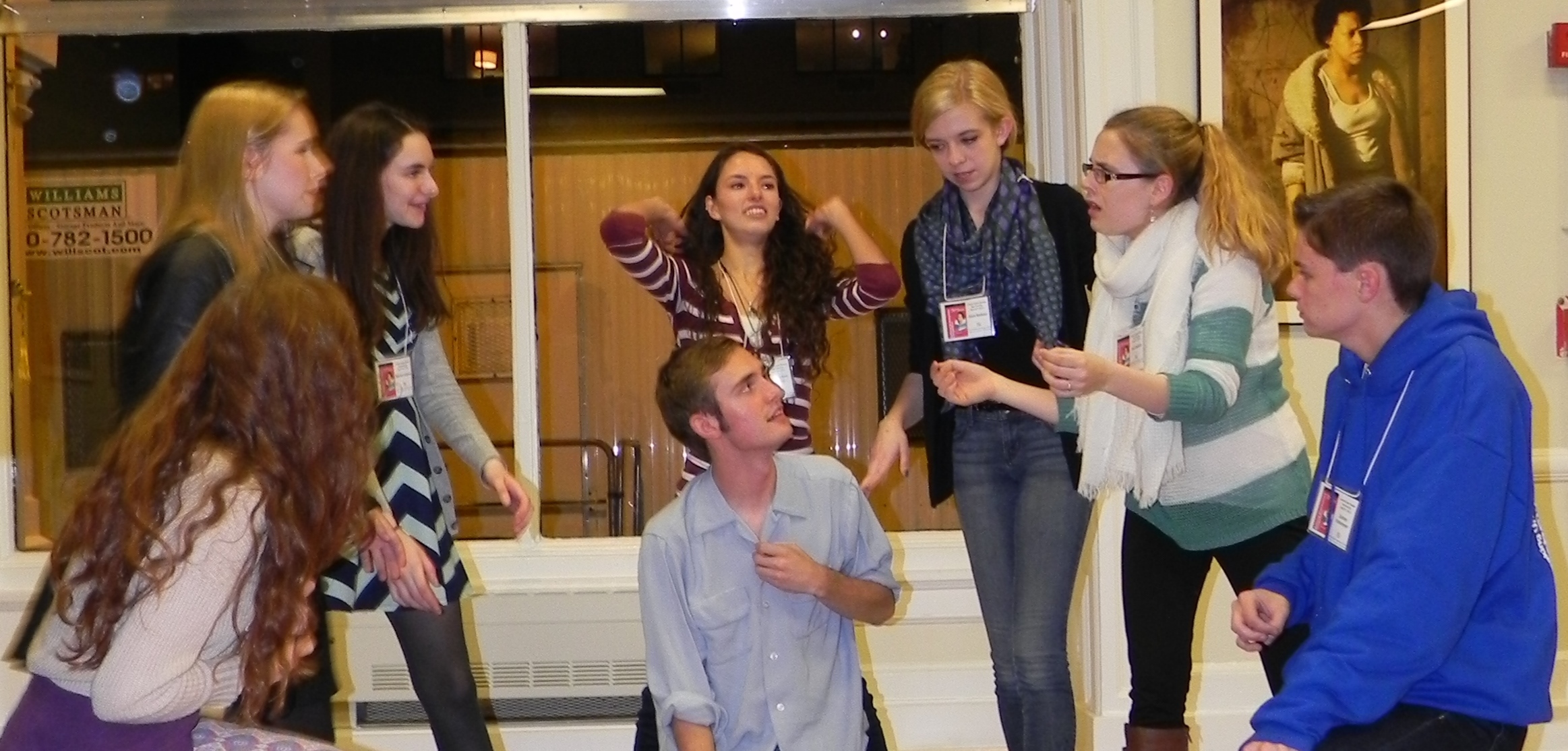
National Shakespeare Competition
In Your Classroom

Below are various ways the ESU Shakespeare Competition can be implemented at your school.
In the Classroom
We encourage you to incorporate the Competition into your classroom curriculum.
Below is a sample class schedule; it does not require full class periods and can easily be adapted to fit your already established curriculum. The program takes place over the span of 5-6 weeks (which you can adjust according to your own interest, agenda and time constraints).
CLASSROOM SCHEDULE
Week 1
- Pass out Competition materials to your students, including the Instructions for Students and Suggested Monologues List. Have students look over the suggested monologues and choose 2-3 monologues that interest them.
- Have students explore the plays in which these monologues appear and research the characters.
- Students select one (1) monologue to present at the school competition.
Week 2
- Read and discuss 2-4 monologues in class (preferably a mixture of comedic and dramatic ones). Select monologues from plays your students are already studying in class or choose pieces from various works.
- Students begin reading the play in which their monologue appears (if they have not already
done so) outside of class; they should finish by the end of Week 3. Note: Depending on which play they select and what your curriculum covers, this may intersect with your current class reading schedule.
Week 3
- Model effective and ineffective performance practices for your students. You can do this by modeling these techniques yourself or even better by showing various video clips of performances (stage productions, films, etc)*. *To meet Common Core RL.11-12.7.: Show various performance clips of the same scene and discuss the differences.
- Have students get up on their feet and practice good performance techniques with a printed copy of their monologue. Offer advice and guidance (if necessary).
- Students begin memorizing their monologues and finish reading the plays in which their monologue appears.
Week 4
- Students work separately (on their feet) exploring their own interpretation of the monologue with their body and voice both in and outside of class.
- Have them also practice their monologues in pairs with various partners in class.
- Students continue to work on their memorization. They should have their monologues completely memorized and be able to recite without using a printed copy by the end of the week.
Week 5
- Hold practice competitions: Break up the class into groups. One student at a time performs for the group, which acts as a body of judges. Encourage positive discussion about the interpretation and presentation. Have each classmate comment on what they noticed about the student's performance; what they liked about it (with examples); and what the student might change or add to the presentation.
Week 6
- Hold the classroom competition (not required). Each student presentation is approximately 3 minutes with an additional minute or so for you to judge the performance. (Break up the competition into multiple days, if necessary).
- Hold the school-wide competition.
- A school winner and school runner-up are chosen. The school winner advances to the local ESU Branch Competition.
Beyond the Classroom
We understand that it may not always be possible to fit the program into already busy class periods. Alternatively, you may offer the Competition as an extra-curricular activity (free period/zero hour, lunch period or after school) open to all eligible students.
You may incorporate Competition preparation into one or more of the following clubs (if applicable):
- Drama Club
- Speech or Forensics Club
- English or Language Arts Club
- Shakespeare Club
- History Club
